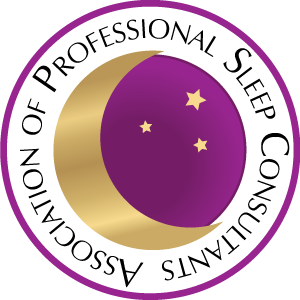It’s a common myth and a sensitive topic that sleep deprivation is typically part of the new parent package.
Everyone likes to joke how new parents won’t get any decent sleep for the next few years (at least!). With many people accepting the fact that feeling tired day after day is just one of the burdens of parenthood.
The thing is, this lack of sleep is not cool and it doesn’t have to be this way.
Lack of sleep can impact your cognitive functions, including emotional processing and perception. Today, we will delve into some of the scientific findings that underline the importance of adequate sleep and how it can transform your parenting experience so that you don’t feel increasingly sensitive.

Research has shown a link between sleep deprivation and emotional processing, particularly the way we perceive and respond to negative emotional stimuli.
While no studies specifically focus on the effects of sleep deprivation on parent reactions to a child’s cries, conclusions from current research offer some interesting insights.
In 2007, a study conducted by Yoo et al. [1] revealed that sleep deprivation results in the amygdala—the area of the brain involved in processing emotions—reacting more to negative emotional stimuli.
What does this mean for new parents? With the sleep deprivation that often accompanies this phase of life, our emotional responses could be heightened, potentially causing us to perceive your baby’s cries as more distressing than they might be under rested conditions.
Further emphasising the effect of sleep deprivation on emotional regulation, a study by van der Helm et al. in 2010 showed that sleep deprivation could impair emotional regulation by disrupting the connectivity between the amygdala and the prefrontal cortex. The prefrontal cortex plays an essential role in controlling emotional responses, implying that sleep deprivation might exacerbate negative or distressing perceptions, such as the sound of your baby crying.
These studies suggest that sleep deprivation might lead to amplified emotional reactivity and altered perception of emotionally taxing stimuli. In a nutshell, you will more than likely be feeling hypersensitive to a lot of things happening around you.
This is where my role as a Sleep Sense Consultant comes into play.
I am here to help ensure that your family transitions smoothly into this new phase of life, with everyone achieving healthier, more restful sleep. By implementing tailored, gentle strategies, we can work together to help your baby (and you!) get the sleep needed to thrive.
Why does this matter?
A well-rested parent is more likely to have balanced emotional reactions, making it easier to respond to your child’s needs effectively.
Adequate sleep not only aids in maintaining emotional balance, but it also helps to improve overall mental and physical health. The result? A more serene and enjoyable parenting experience.
To clarify, sleep deprivation is not an inevitable part of parenthood.
With the right guidance and a little patience, you can enjoy the precious days with your young children without the burden of chronic fatigue.
My mission is to support you in this journey, using evidence-based techniques to promote healthy sleep habits for your whole family.
As always, feel free to contact us to discuss how we can assist your family to achieve good sleep.
BOOK A FREE SLEEP EVALUATION
[1] Yoo, S. S., Gujar, N., Hu, P., Jolesz, F. A., & Walker, M. P. (2007). The human emotional brain without sleep — a prefrontal amygdala disconnect. Current Biology, 17(20), R877–R878. https://doi.org/10.1016/j.cub.2007.08.007





